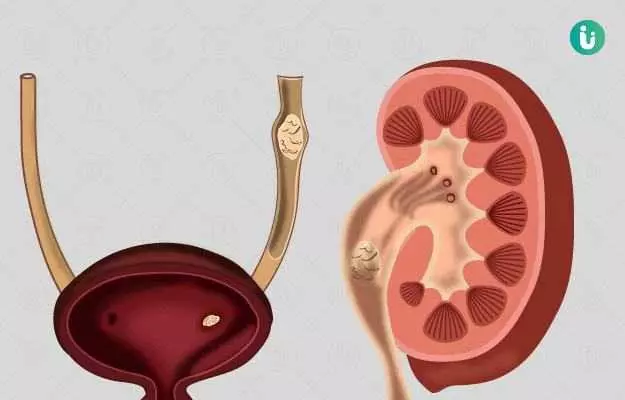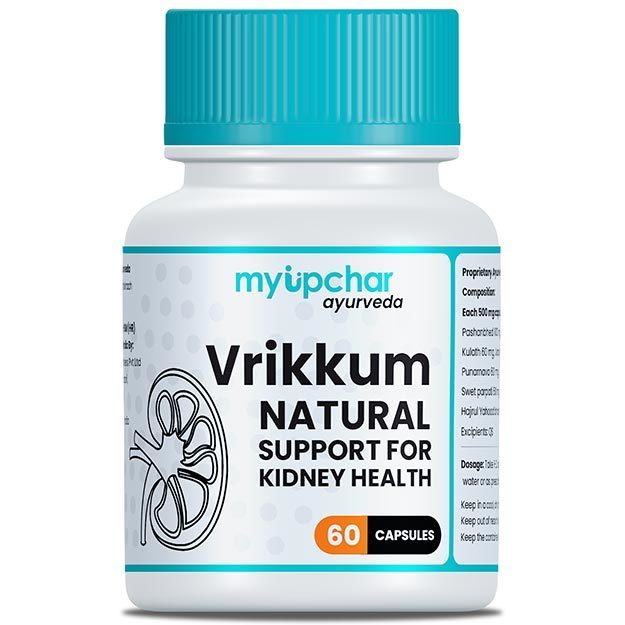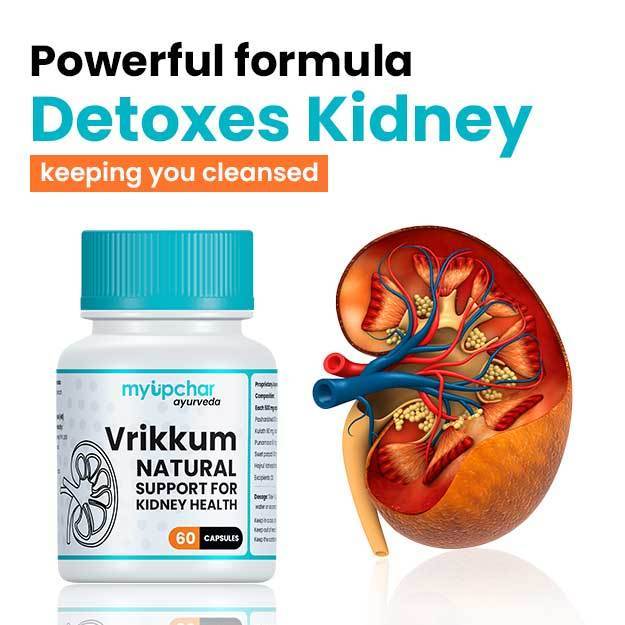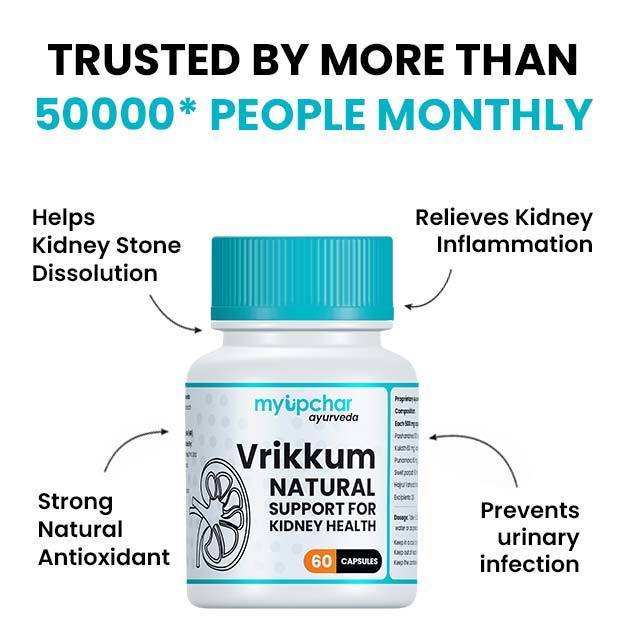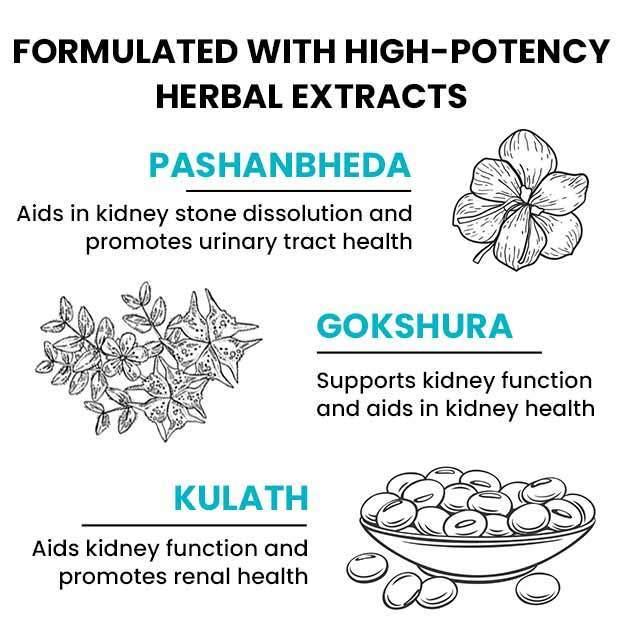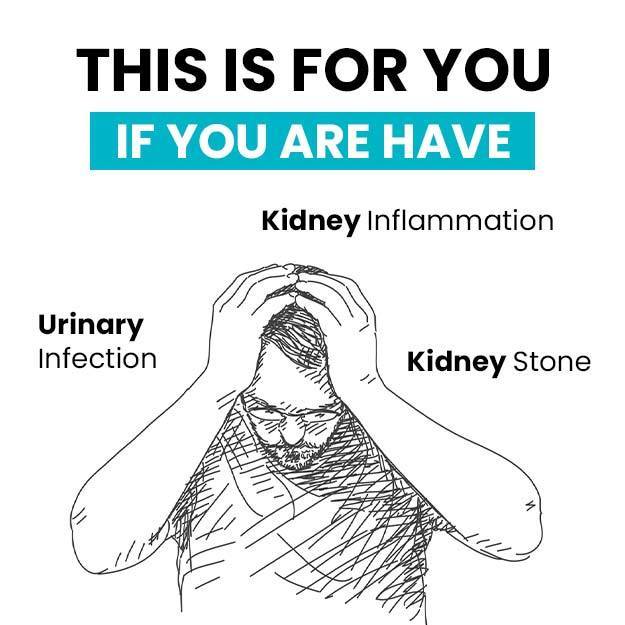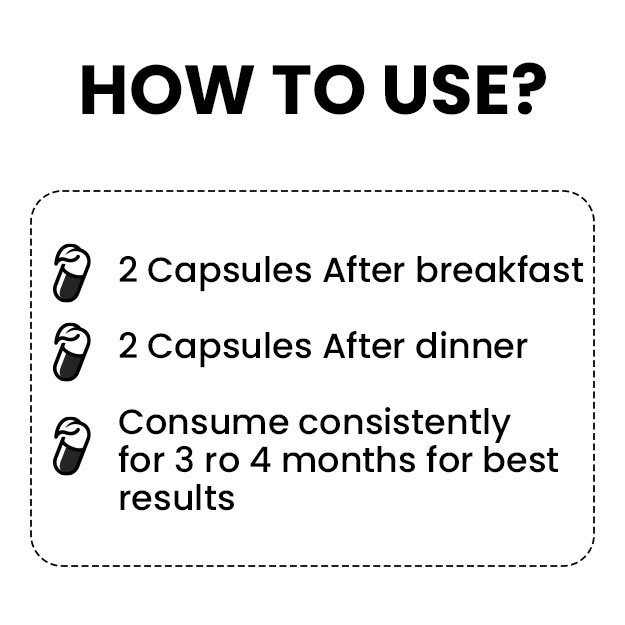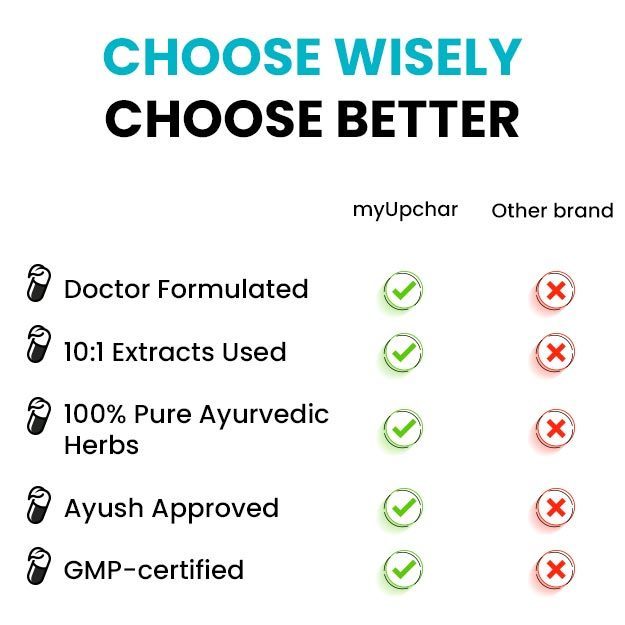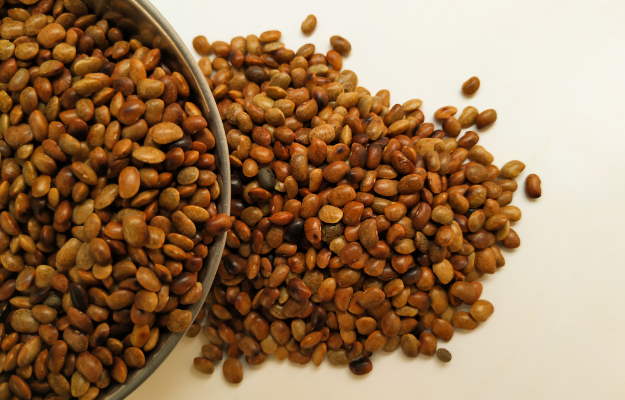The main function of the kidneys is detoxification of blood and excretion of liquid waste from the body. During this process, waste material may sometimes form crystals that clump together to form a solid mass. These are known as kidney stones. Kidney stones are small clusters of mineral deposits present on the inner lining of kidneys. These stones, although developing in kidneys, can be traced anywhere in the urinary tract.
Pain occurring due to kidney stones is often expressed as one of the most painful experiences comparable to that of pain during childbirth. Kidney stones are made of calcium oxalate but may be formed of several other minerals.
There are certain foods and flavour enhancers that may cause these deposits to build up in kidneys. These foods may include animal proteins, foods with high salt, sugars or the foods specific to the type of kidney stone formed such as high purine diet in case of uric acid stones.
So, there is always a diet you can follow to keep kidney stones at bay and to reduce the severity of pain in case you have stones in your kidneys.
But before we start with foods, water is the first thing one needs to consider. You need to drink 2 to 3 litres of water each day, in addition to the other liquids you are taking to avoid kidney stone formation.
Here is all you need to know about things you should eat and avoid if you have kidney stones.
(Read more: Kidney stone analysis)
- How to tell if you have kidney stones
-
Foods to avoid if you have kidney stones
- Avoid carbonated drinks if you have kidney stones
- Avoid wheat bran if you have kidney stones
- Avoid legumes if you have kidney stones
- Avoid peanuts if you have kidney stones
- Avoid beets if you have kidney stones
- Avoid spinach if you have kidney stones
- Avoid soybeans if you have kidney stones
- Avoid chocolate if you have kidney stones
- Avoid animal protein for kidney stones
- Avoid high sodium diet if you have kidney stones
- Foods to eat if you have kidney stones
- Takeaway for kidney stones diet
How to tell if you have kidney stones
Kidney stones, at times, maybe so small that they are easily passed through urine without experiencing any symptoms. However, when the stones move into the ureter, a bunch of symptoms may be experienced:
- Unbearable radiating pain in the area of the groin
- Blood passed with urine or haematuria
- Nausea or vomiting
- Pus or white blood cells in urine
- Less amount of urine passed
- Burning sensation when urinating (Read more: Urinary tract infection)
- Persistent urge to urinate
- Fever and chills in case of infection
Although, there are various treatments available for kidney stones that include surgical procedures such as lithotripsy, ureteroscopy or open surgery and medications like pain relievers, antibiotics and muscle relaxants, taking care of your lifestyle and diet is essential.
Foods to avoid if you have kidney stones
When you have kidney stones, you should avoid foods rich in animal protein or foods high in oxalates such as spinach, meat, chocolates or soybeans. If you eat these foods, it can increase the number or size of stones in your kidneys, which can further deteriorate your problem.
Avoid carbonated drinks if you have kidney stones
Although fluids are said to be extremely important for those who have kidney stones, it is more important to consume the right ones. Research shows that soda drinks such as colas contain phosphoric acid, which enhances your risk of kidney stone formation. Therefore, you should avoid sodas to help reduce the recurrence of stones.
Avoid wheat bran if you have kidney stones
Wheat bran is rich in oxalates, hence it should be avoided if you have kidney stones. High oxalate in urine raises your risk for getting stones more than high calcium in urine. Research has also shown that foods rich in oxalates increase stone formation in kidneys. Instead, you can opt for oat bran flakes in your diet.
Avoid legumes if you have kidney stones
Legumes, lentils or daal are although a great food for the heart and diabetic patients but lentils also contain phytates (antioxidant compounds that bind to minerals like iron or zinc and less of calcium and slow their absorption), potassium, phosphorous, purines and oxalates that support stone formation in kidneys. One serving of lentils is known to provide 50 milligrams of oxalate, which is not recommended to a person susceptible to kidney stones.
Avoid peanuts if you have kidney stones
Peanuts are rich in oxalate content. Research has reported the deposition of calcium oxalates stones induced by high intake of peanuts. However, high intake of peanuts has also been reported to have led to kidney damage. Additionally, a few studies are have described peanuts taken along with binge drinking to cause oxalate nephropathy (damage of the kidney resulting in kidney failure).
Avoid beets if you have kidney stones
Beetroot is rich in oxalates that are known to cause kidney stones. So if you already have kidney stones, you shouldn't be taking beets at all, as it may cause your urine oxalates to get excreted and calcium oxalates to get increased and aggravate the problem. You should also refrain from having beet juice.
Avoid spinach if you have kidney stones
Spinach, although a very good source of proteins, vitamins, minerals, fibre and water,is also rich in oxalates. When consumed, oxalates bind to calcium in body and influence the growth of calcium oxalate stones. This may increase urinary oxalate excretion. Furthermore, spinach, being an alkaline food increases the urinary pH and may add to stone problems.
Avoid soybeans if you have kidney stones
Soybeans are rich in oxalates. Excess consumption of soybeans may hence lead to kidney stone formation if an inadequate amount of fluids or calcium are consumed along with it. A study investigated the effect of avoidance of soybean and its products in patients with kidney stones. It was found to cause a significant decrease in urinary oxalate This gives reason enough to avoid soybean.
Avoid chocolate if you have kidney stones
Chocolates, being rich in oxalates, stimulate the formation of calcium oxalates in kidneys. As oxalate is a metabolic end product and is passed unaltered in urine, nutritionists suggest a low-oxalate diet to patients with calcium oxalate stones in their kidneys.
Moreover, chocolates have high amounts of potassium and phosphorous that are not recommended for patients with kidney diseases. Hence, you should avoid having chocolates if you suffer from kidney stones.
Avoid animal protein for kidney stones
Purine-rich diets (meat, fish and poultry) may influence the formation of kidney stones, as per the National Institute of Diabetes and Digestive and Kidney Diseases. This is because high animal protein triggers calcium oxalate (calcium stones) formation in kidneys. Ingestion of these foods along with inadequate intake of fluids increases the risk of stone formation. You may want to consider plant proteins instead of animal proteins if you have kidney stones.
Avoid high sodium diet if you have kidney stones
Sodium regulates the formation of kidney stones, therefore it adds to crystal deposition if taken in high amounts. The salt that we add to our food contains sodium, so try and avoid excessive intake of salt. also. Taking high sodium diet may lead to an increment in the levels of calcium in your urine, which in turn triggers the formation of kidney stones.
A study conducted by the University of Texas demonstrated that crystallization of calcium salts occur with a high sodium diet intake.
Salted nuts, chillies, and canned beans are some sodium-rich foods.
Foods to eat if you have kidney stones
When you have kidney stones, it is important to know what foods you should eat to get rid of them. For instance, you should be taking foods rich in vitamin C, acetic acid or citric acid or the foods that are diuretic (promote expulsion of urine). these foods help the kidney stones to get dissolved and pass through the urine.
Aloe vera for kidney stones
Aloe vera has much potential in the management of kidney stones. The citrate and tartare present in aloe vera gel make it ideal for preventing and dissolving calcium oxalate crystals in kidneys, as evidenced by various researchers.
Although, according to the National Institute of Health, aloe vera is hard on kidneys and may lead to kidney disease. So, you should always consult your doctor before taking any such remedy.
Baking soda for kidney stones
Baking soda brings down the acidic levels in body. This further aids in dissolving kidney stones that block renal tubes. Baking soda also helps to maintain pH balance and prevent further crystal formation in kidneys. A research study established that sodium bicarbonate (baking soda) can be an effective treatment against kidney stone formation.
Coriander for kidney stones
Coriander or dhaniya is rich in phytonutrients and is known for its antioxidant activity. It is a natural diuretic, which helps in naturally cleansing the kidneys and in dissolving kidney stones. In Ayurveda, coriander juice is known to possess diuretic property and effective in the disintegration of kidney stones, gallstones and urinary tract stones.
Watermelon for kidney stones
Watermelon is rich in potassium that helps in maintaining urine acidic levels in body. Besides, watermelon has high amounts of water that help in flushing out toxins and in removing kidney stones and crystals. One study mentioned watermelon as a natural source of dietary citrate, which brings down urine citrate levels, reducing oxidative stress in kidneys and preventing kidney stone formation.
Tulsi for kidney stones
Tulsi or holy basil, which is a common herb used in most Indian kitchens, contains a good amount of acetic acid, which is known to help dissolve kidney stones. Besides, tulsi leaves have antioxidant and anti-inflammatory properties, which make them a good choice to maintain kidney health. Researchers have shown that tulsi extract is helpful in the disintegration of kidney stones.
Pomegranate for kidney stones
Pomegranate juice is highly rich in antioxidants such as ascorbic acid and polyphenolic flavonoids. These qualities of pomegranate help to lower acidic levels and improve the overall kidney function. A research study demonstrated the protective effects of pomegranate juice against crystal deposition in kidney tubes. An in-vivo study found reduced crystal formation in kidneys owing to the oxidative activities of pomegranate juice.
Nettle leaf for kidney stones
Nettle leaf or bichu buti is a good source of vitamins A, C and E. Being rich in proteins, calcium, folic acid, flavonoids, saponins and polysaccharides, these leaves help to dissolve kidney stones. A study has shown that treatment with nettle leaves dissolve calcium oxalate crystal deposits and hence prevent kidney damage. It was also suggested to help maintain urinary pH.
Apple cider vinegar for kidney stones
The acetic and citric acid found in apple cider vinegar helps to soften, dissolve or break down kidney stones. Research has shown that increased consumption of ACV led to a lesser risk of kidney stone formation. Another study demonstrated that regular use of apple vinegar reduced oxidative stress and lipid levels in kidneys. This proves the benefits of ACV in dissolving and preventing kidney stones.
Radish juice for kidney stones
Radish juice is rich in vitamin A, vitamin B, vitamin C, iron, phosphorous, digestive enzymes and fibre. Its use in detoxification of the body and treating kidney stones has been well recognised. A study conducted to determine the effect of radish on kidney stones found that kidney stones start to dissolve as urine oxalate levels drop. An increase in radish consumption increased the excretion of calcium oxalates, facilitating the removal of stones.
(Read more: iron deficiency symptoms)
Lemon for kidney stones
Lemons are highly rich in vitamin C or citric acid. Citrate, a salt present in the citric acid, binds to calcium deposits and helps block stone formation. A study suggested that citrate may prevent the aggregation of bigger crystals from the small crystals already present.
Mix 3 spoons of lemon juice with 1 litre of water. Include this in your total fluid intake. This may help increase citrate in your urine and lower the risk of kidney stone formation.
(Read more: How much water to drink in a day)
Takeaway for kidney stones diet
A healthy lifestyle and proper diet make an important part of kidney stones treatment. Along with taking medicines, it is also important to eat and avoid certain foods that may affect your kidney stone risk and symptoms. Avoiding foods rich in animal protein and oxalates is recommended. Eating foods rich in vitamin C, antioxidants and high water content helps. Additionally, drinking plenty of water will help dilute uric acid, preventing kidney stones.
Find Nutritionist in cities
Doctors for What foods to eat and what to avoid if you have kidney stones

Dr. Dhanamjaya D
Nutritionist
16 Years of Experience

Dt. Surbhi Upadhyay
Nutritionist
3 Years of Experience

Dt. Manjari Purwar
Nutritionist
11 Years of Experience

Dt. Akanksha Mishra
Nutritionist
8 Years of Experience
References
- National Kidney Foundation [Internet] New York; 6 Tips To Be “Water Wise” for Healthy Kidneys
- Rebecca Phillips et al. Citrate salts for preventing and treating calcium containing kidney stones in adults. Cochrane library [Internet]
- Kumar A. Influence of radish consumption on urinary calcium oxalate excretion. Nepal Med Coll J. 2004 Jun;6(1):41-4. PMID: 15449653
- Guohua Zeng et al. Prevalence of kidney stones in China: an ultrasonography based cross‐sectional study. BJU International [Internet]
- Zhang H et al. Protective effect of Urtica dioica methanol extract against experimentally induced urinary calculi in rats. Mol Med Rep. 2014 Dec;10(6):3157-62. PMID: 25310585
- Tugcu V et al. Protective effect of a potent antioxidant, pomegranate juice, in the kidney of rats with nephrolithiasis induced by ethylene glycol. J Endourol. 2008 Dec;22(12):2723-31. PMID: 19025399
- Ilbey YO et al. Effects of pomegranate juice on hyperoxaluria-induced oxidative stress in the rat kidneys. Ren Fail. 2009;31(6):522-31. PMID: 19839830
- Shashi Alok, Sanjay Kumar Jain, Amita Verma, Mayank Kumar, Monika Sabharwal. Pathophysiology of kidney, gallbladder and urinary stones treatment with herbal and allopathic medicine: A review . Asian Pac J Trop Dis. 2013 Dec; 3(6): 496–504. PMC4027340
- Prezioso D et al. Dietary treatment of urinary risk factors for renal stone formation. A review of CLU Working Group. Arch Ital Urol Androl. 2015 Jul 7;87(2):105-20. PMID: 26150027
- Kirdpon S et al. Effect of aloe (Aloe vera Linn.) on healthy adult volunteers: changes in urinary composition. J Med Assoc Thai. 2006 Aug;89 Suppl 2:S9-14. PMID: 17044448
- National Institute of Diabetes and Digestive and Kidney Diseases [internet]: US Department of Health and Human Services; Eating, Diet, & Nutrition for Kidney Stones Can I help prevent kidney stones by changing what I eat or drink?.
- InformedHealth.org [Internet]. Cologne, Germany: Institute for Quality and Efficiency in Health Care (IQWiG); 2006-. Preventing kidney stones. 2016 Feb 25 [Updated 2019 Feb 28].

